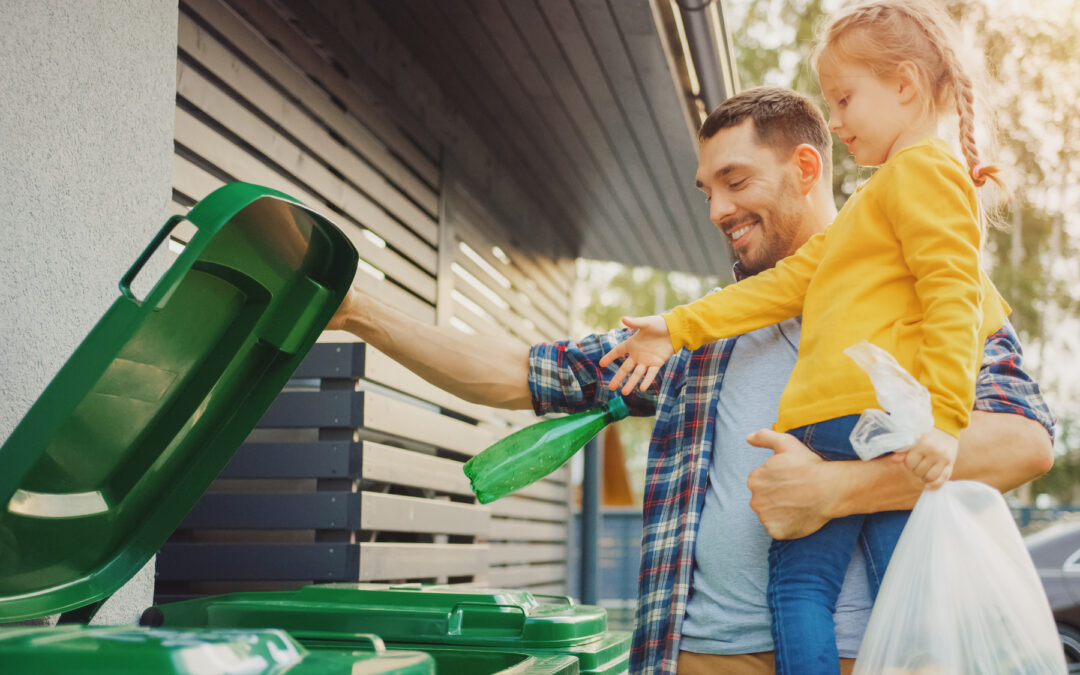We all know how important recycling is, but truth be told, it can get really confusing at times. It is hard to tell what exactly goes into the common recyclables bin or the compost bin, if you are not familiar with your local recycling guidelines. And what in the world do you do with things that should be recycled, like electronics, but can’t be recycled at the curb?
I’m here to break it all down for you. I’ll go over all the general recycling tips as well as point you in the right direction so you know what to do with items that cannot be recycled at the curb. Recycling is not only healthy for the environment but for your local community too, so if you are eager to do your part in keeping your city clean, these recycling tips can help you do just that.
Organic Waste and Compost
Food scraps, liquids, and other organic household waste should not be part of your recycling. These could damage and/or contaminate other recyclables at separation facilities. These accidents can cost your city a lot of money in repairs, but more importantly, it can disrupt the recycling channel for other residents.
Guidelines
When it comes to compost, each city has their own guidelines to handle them. Be it fertilizer waste, household food scraps, or yard debris (leaves, brushy materials, broken branches, and trimmings), they must be kept separate from other recyclables, such as paper, plastic, or metal.
Tie up brushy materials in stacks so they don’t dirty up your curb on windy or rainy days. Don’t pack the content of your compost bin too tightly – they should fall freely. Also be aware of weight limitations set by your local waste authority and any additional fees that may apply if you go above them.
Know Your Plastics
Not all plastics can be recycled efficiently, which is why most cities will only treat rigid plastics, such as resin codes 1-7. The rule of thumb for plastic recycling is, the higher the number, the less recyclable it is.
Guidelines
Most municipalities in the US currently do not offer curbside plastic recycling.
Their recycling rate has fallen from 8.7 per cent in 2018 to 5-6 per cent in 2021, according to a study conducted by the Environmental Protection Agency. However the use of plastics in the US continues to soar, which is exactly why we must do our part in reducing plastic use.
Paper Products and Cardboard
Nearly all paper products can be recycled but be sure to remove any plastic wrappings or films before you toss them into the recycling bin. But what about those pizza boxes? Yes, you can recycle them too as long as you clean them off any cheese or grease.
Guidelines
Newspapers, books, magazines, office papers, and other paper products can be put in your common recyclables bin (usually the blue bin).
Corrugated cardboards, however, are a different story. These must be flattened and stacked together and kept separately from other recyclables. They are easier to handle this way and will also leave more room in the recycling cart for other items.
Scrap Metal, Cans, And Pie Plates
During the recycling process, facilities have to melt the metal items that may get contaminated if there is organic waste present in the mix. This usually means a fast-track to the landfills. So remember, diligently sorting your items will result in a more efficient recycling process.
Guidelines
Nearly all metal items in your home can be recycled. This applies to aluminum cans, food cans, tin foil, aerosol cans (empty), and ofcourse, all the soda cans that keep piling up.
It is important however to rinse them out properly (without any food or liquid residue left) before putting them in the recycling bin.
Batteries and Cell Phones
Disposing of batteries safely is not only important for the environment but also for the health of your family and the community. They can also pose a considerable amount of threat to the recycling equipment if not handled properly. As many cell phones these days come without removable batteries, they need to be treated with care too when recycling.
Guidelines
If you have batteries and cell phones that need to be recycled, take them to a battery recycler in your city or check with your local solid waste authority. A main consideration here is to package the items as per safety guidelines before bringing them to a recycling facility.
Appliances and Electronics
Electronic items like computers, printers, DVD players, speakers, monitors, and Tvs, contain several kinds of precious metals. It is always a good idea to recycle them as it helps curb the depletion of these essential metals.
Guidelines
Nearly all appliances and electronics can be recycled curbside these days. Some municipalities offer electronic waste recycling at no extra cost, while others may charge you a small fee for them. But if your city can not take care of these for you, then you can always drop them off at the nearest transfer station.
Household hazardous Waste
Every household generates a certain amount of hazardous waste and it is important that we recycle these materials safely. They can not only pose a threat to your family members but also to the community and nearby wildlife if not disposed of properly.
Guidelines
If your local waste authority recycles items such as cleaning agents, automotive oil, pesticides, paint, and other unwanted chemicals, they must be put out in separate bins in clear containers that are sealed tightly.
You may have to put a label on the cart declaring the items as hazardous chemical waste if your local waste authority guidelines urge you to do so.
Combined Materials
Recycling works the best when like materials are processed together. Unfortunately, many items like envelopes, laminated paper, and plastic-coated cups, can be very hard to separate. That usually means that they cannot be recycled at the curb.
Guidelines
The best way to avoid this issue is by buying items that can be easily recycled. But keep in mind that many items that come with a little triangle at the bottom do not qualify for recycling unless specified by your local waste authority. It’s always best to refer to your local recycling guidelines before you blindly start tossing items in your recycling cart.
If It’s Too Small, Don’t Recycle It
If an item is smaller than your credit card, do not recycle it. That includes bottle caps, paper clips, stapler pins, coffee pods, and all other tiny things that sneak into our daily lives. They could jam the sorting and recycling equipment due to their small size.
Such items should be taken to scrap centers who are better prepared to handle them. Checking with the local waste authority might also help you find alternative ways of dealing with small recyclables.
I hope this helps you have a better grasp on how to recycle in our city so we can do a better job of helping the environment. Truly, every little bit helps!


Recent Comments